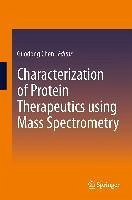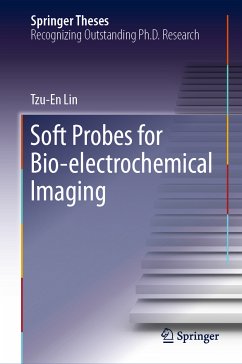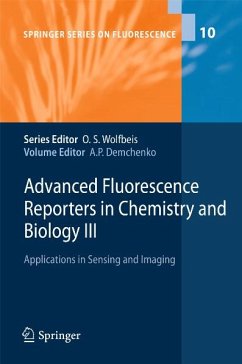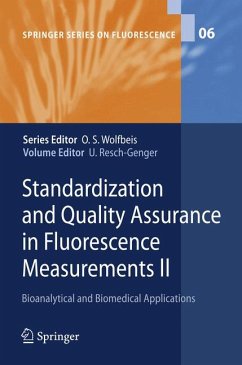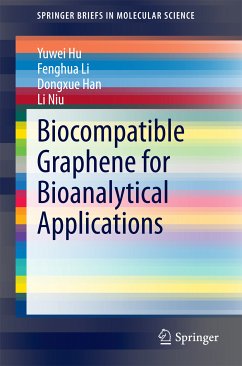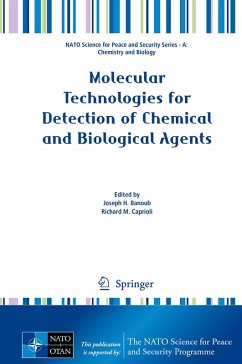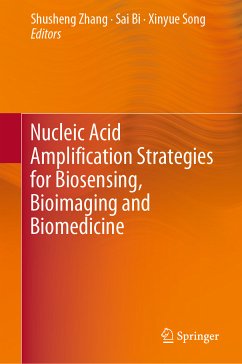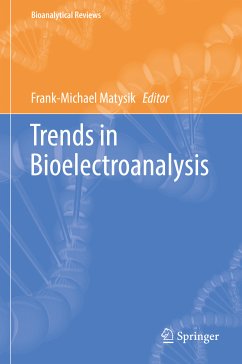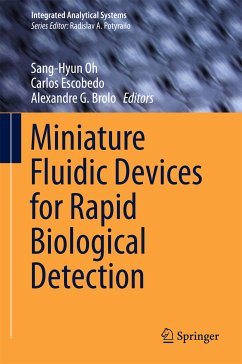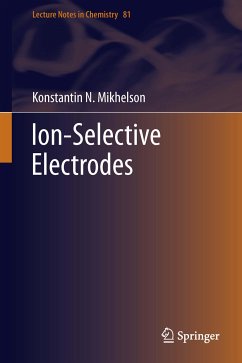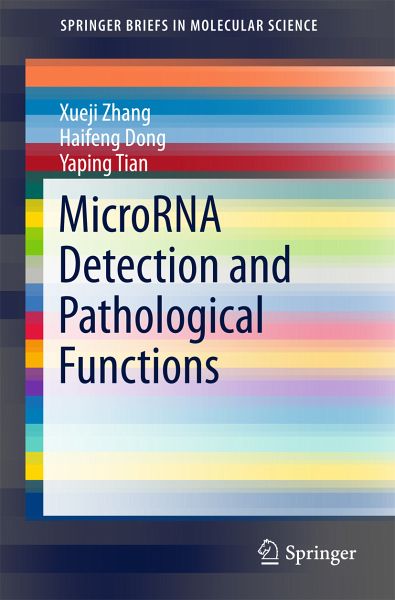
MicroRNA Detection and Pathological Functions (eBook, PDF)
Versandkostenfrei!
Sofort per Download lieferbar
40,95 €
inkl. MwSt.
Weitere Ausgaben:

PAYBACK Punkte
20 °P sammeln!
This book summarizes microRNA (miRNA) biology in a variety of pathological processes, emphasizing the significant potential applications of miRNA in diagnostics and prognostics, as well as novel drug targets. The conventional techniques used for miRNA detection including standard PCR, Northern blotting, microarray and clone methods are addressed. Recent emerging strategies in miRNA detection and quantification with superior flexibility and adaptability, such as novel molecular biological techniques and locked nucleic acid (LNA) modified probes, as well as nanotechnology-based approaches, are a...
This book summarizes microRNA (miRNA) biology in a variety of pathological processes, emphasizing the significant potential applications of miRNA in diagnostics and prognostics, as well as novel drug targets. The conventional techniques used for miRNA detection including standard PCR, Northern blotting, microarray and clone methods are addressed. Recent emerging strategies in miRNA detection and quantification with superior flexibility and adaptability, such as novel molecular biological techniques and locked nucleic acid (LNA) modified probes, as well as nanotechnology-based approaches, are also included. The book also highlights the latest advances in clinical-related miRNA detection methods in living cells, circulating blood and tissue, such as in situ hybridization (ISH) and molecular imaging techniques, which are useful to elucidate the biogenesis and biological function of miRNAs in vivo. Finally, the respective advantages and drawbacks of various detection techniques in this fast-moving field are discussed, along with the challenges and promising new directions.
This book offers a valuable resource for analytical chemists, biologists and physicians involved in miRNA research.
Dr. Xueji Zhang and Dr. Haifeng Dong are Professors at the School of Chemistry & Biological Engineering, University of Science & Technology Beijing (USTB), China. Dr. Yaping Tian is a Professor at the Department of Clinical Biochemistry, Chinese PLA General Hospital and Military Medical School, China.
This book offers a valuable resource for analytical chemists, biologists and physicians involved in miRNA research.
Dr. Xueji Zhang and Dr. Haifeng Dong are Professors at the School of Chemistry & Biological Engineering, University of Science & Technology Beijing (USTB), China. Dr. Yaping Tian is a Professor at the Department of Clinical Biochemistry, Chinese PLA General Hospital and Military Medical School, China.
Dieser Download kann aus rechtlichen Gründen nur mit Rechnungsadresse in A, B, BG, CY, CZ, D, DK, EW, E, FIN, F, GR, HR, H, IRL, I, LT, L, LR, M, NL, PL, P, R, S, SLO, SK ausgeliefert werden.




